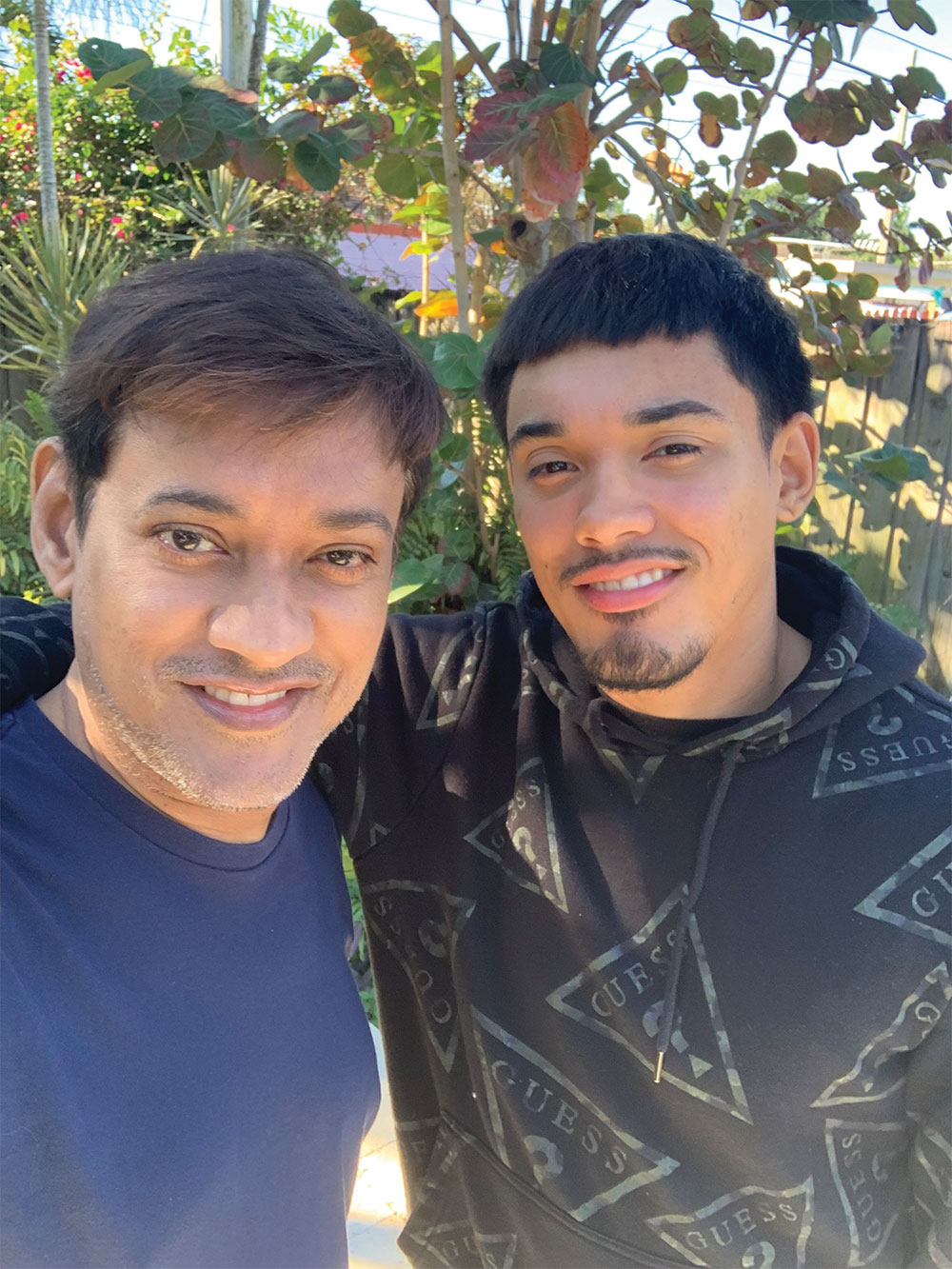When David Rodriguez was diagnosed with stage 3 prostate cancer November 2022, his world fell apart. He broke down in tears when a nurse delivered the news. He kept crying when he called his sister from the parking lot. He couldn’t bring himself to call his mother or grandmother that day. His son was serving in the Marines, so he didn’t tell him, either, so his boy could focus on his mission.
 David Rodriguez (left) with his son Allan.
David Rodriguez (left) with his son Allan.As the days passed, Rodriguez’s body started to break down. He constantly threw up. It was a struggle to get in and out of his car. “I could be talking to someone, having a great time, and then I’d collapse from exhaustion,” says Rodriguez, 57.
A few weeks later, Rodriguez was referred to Sylvester and introduced to the cancer support services available. One by one, Rodriguez was connected to specialists, psychiatrists, therapists, and a pastor who have helped Rodriguez navigate the medical, financial and emotional rollercoaster of a cancer diagnosis.
He also found peace while creating art in the center’s art therapy classes. He relaxed while playing drums in the center’s music therapy classes, relished the massage therapy that helped his body cope and gained spiritual insight from long talks with the center’s pastor.
And he met Zelde Espinel, M.D., a psycho-oncologist who serves as a psychiatrist for cancer patients. Dr. Espinel talked Rodriguez through his anxiety and took it upon herself to manage his complicated case.
Rodriguez is one of the thousands of patients who have gone through the cancer support services, a collection of 28 full-time employees certified to treat cancer patients through 10 kinds of services.
As Rodriguez continues on his road to recovery, he says he’s found a new family at Sylvester. “Finding anyone who helps you is a big challenge,” he says. “Finding an entire team of people like that, it’s pure magic. If you don’t live it, you can’t believe it.”